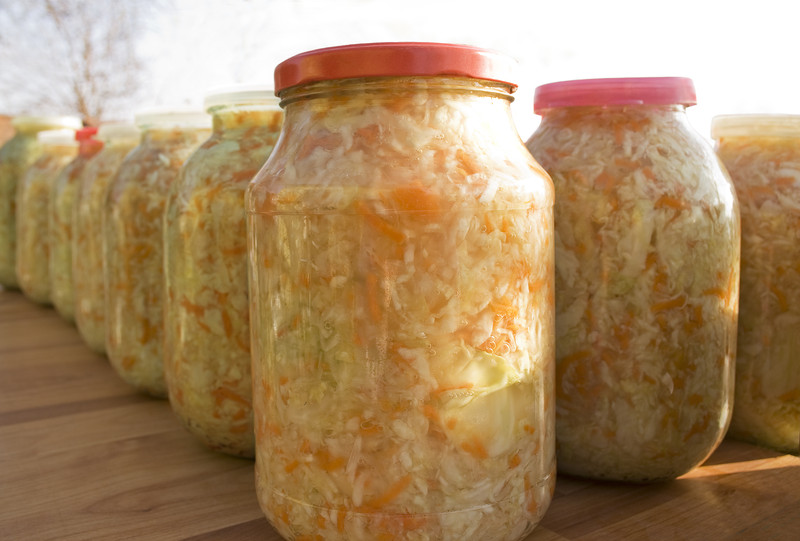There is a growing understanding that the microbial composition of the digestive system, urogenital system, and urine of women with pelvic pain conditions such as irritable bowel syndrome (IBS), interstitial cystitis (IC), and chronic yeast infections varies from those in healthy women.
For example, women with IC have significantly higher percentages of Lactobacillus in their urine compared with the urine of healthy, asymptomatic women (Siddiqui, Lagesen, Nederbragt, Jeansson, & Jakobsen, 2012). Lactobacillus is generally considered a commensal bacterium known for its helpful presence in vaginal microflora where it maintains an acidic environment in order to prevent infection from pathogenic bacteria. In a review article published in 2006, probiotics containing certain strains of Lactobacillus were found to be effective to prevent recurrent urinary tract infections in women (Falagas, Betsi, Tokas, & Athanasiou, 2006). However, in patients who are immune compromised or otherwise weakened by a significant history of intervention in the pelvis, as was the case in this specific case study report, Lactobacillus strains have the potential to be infectious (Darbro, Petroelje, & Doern, 2009).
How can fermented foods and supplements be a part of a comprehensive, conservative treatment plan for chronic pelvic pain complaints, including IC?
First of all, based on the case report mentioned above (Darbro et al., 2009), even commensal bacteria such as Lactobacillus can become infectious if a client is immune compromised, has experienced multiple interventions in the pelvis, or if her urogenital bacterial diversity is compromised. Fortunately, despite the complexity of many of our pelvic pain clients, cases have been reported of even those with recurrent UTI’s, IC, and failure of multiple antibiotic therapies responding to a comprehensive nutritional approach.
In two cases reported in 2014, two women, both aged 28 presented with histories of recurrent UTI’s and pelvic pain lasting between 2 and 17 years (Mansour, Hariri, Shelh, Irani, & Mroueh, 2014). Both also presented with IC with chronic symptoms of bladder urgency, frequency, pelvic pain, dyspareunia, and difficulty with tampon use. In one case, the patient also developed candidiasis. Both women responded well to a combination of cranberry extract, probiotics (including strains of L. rhamnosus, L. acidophilus, Streptococcus thermophilus, Bifidobacterium bifidum, and L. bulgaricus at levels of at least 2 billion daily), L-arginine, an amino acid known to improve nitric oxide, and magnesium (a common nutrient deficiency in women which when corrected can improve bowel movements and generally relax tissues.) In addition, garlic (antibacterial, antifungal and antiviral) and parsley (an agent that supports detoxification and is a diuretic) were important parts of the complete therapy for long-term resolution of the UTI. Restoring normal hydration was also important, as often women with urogenital complaints will limit fluid intake in order to attempt to suppress urinary symptoms.
The traditional Japanese fermented soybean food, natto, has also been shown in a placebo-controlled trial to significantly reduce the intensity of low back pain after a 4-week course of 250mg twice daily of a supplement form of natto, NKCP® (Hitosugi, Hamada, & Misaka, 2015).
How can we put all of this together clinically for our patients struggling with chronic pelvic pain? First, take a big picture view of your client, is she weakened by a long history of battling pelvic pain, does she need nutrient support, immune support and social support before you add probiotic bacteria that have the potential to become infectious in her body? Then, address nutritional deficiencies such as magnesium deficiency, other mineral deficiencies, vitamin deficiencies, and amino acid deficiencies. (Natto is very high in vitamin K, some B vitamins and amino acids.) Next, be sure to add probiotic foods and supplements with the intention of also increasing the diversity of the beneficial bacteria. In addition to supplementing with a broad-spectrum probiotic of at least 2 billion organisms daily, also recommend probiotic foods such as unpasteurized sauerkraut. Clinically, I find that recommending local, homemade sauerkraut, Kimchi, and coconut yogurt from my clients’ local farmer’s markets or their own kitchens are often the most effective. Then as a supplement, I often recommend Probiotic Synergy because of it’s stability. Finally, include foods such as garlic and parsley that offer antibacterial, anti-inflammatory, antiviral, and diuretic properties.
What is your clinical experience with using fermented foods to improve the digestive and urogenital flora in women with chronic pelvic pain? Share with us in the comments below.
Warmly,
Darbro, B. W., Petroelje, B. K., & Doern, G. V. (2009). Lactobacillus delbrueckii as the cause of urinary tract infection. J Clin Microbiol, 47(1), 275-277. doi: 10.1128/JCM.01630-08
Falagas, M. E., Betsi, G. I., Tokas, T., & Athanasiou, S. (2006). Probiotics for prevention of recurrent urinary tract infections in women: a review of the evidence from microbiological and clinical studies. Drugs, 66(9), 1253-1261.
Hitosugi, M., Hamada, K., & Misaka, K. (2015). Effects of Bacillus subtilis var. natto products on symptoms caused by blood flow disturbance in female patients with lifestyle diseases. Int J Gen Med, 8, 41-46. doi: 10.2147/IJGM.S76588
Mansour, A., Hariri, E., Shelh, S., Irani, R., & Mroueh, M. (2014). Efficient and cost-effective alternative treatment for recurrent urinary tract infections and interstitial cystitis in women: a two-case report. Case Rep Med, 2014, 698758. doi: 10.1155/2014/698758
Siddiqui, H., Lagesen, K., Nederbragt, A. J., Jeansson, S. L., & Jakobsen, K. S. (2012). Alterations of microbiota in urine from women with interstitial cystitis. BMC Microbiol, 12, 205. doi: 10.1186/1471-2180-12-205
[WHNC][About Jessica]







